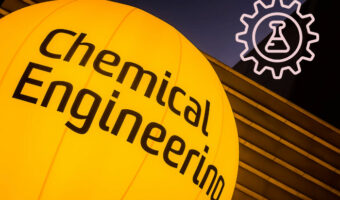Mass Transfer and Separation Processes in Chemical Engineering
About This Course
The course “Mass Transfer and Separation Processes in Chemical Engineering” provides students with a comprehensive understanding of mass transfer principles and their applications in various separation processes. Through a combination of theoretical knowledge and practical examples, students will learn how to design, analyze, and optimize separation units commonly used in chemical engineering.
The course begins with an introduction to the fundamental concepts of mass transfer, including diffusion, convection, and mass transfer coefficients. Students will study the mechanisms governing mass transfer in different phases, such as gas-phase, liquid-phase, and multiphase systems.
Building upon these foundations, the course explores various separation processes used in chemical engineering. Students will learn about distillation, absorption, extraction, membrane separation, and adsorption. They will examine the underlying principles, operating conditions, and equipment used in each process.
The course delves into the design and analysis of separation units. Students will study mass transfer theories and mathematical models that describe the efficiency and performance of separation equipment. They will learn how to evaluate separation unit operations based on key parameters, such as separation efficiency, selectivity, and capacity.
Furthermore, the course addresses advanced topics in mass transfer and separation, including mass transfer in non-ideal systems, mass transfer with chemical reaction, and mass transfer enhancement techniques. Students will explore strategies to optimize separation processes, improve mass transfer efficiency, and overcome limitations associated with non-ideal conditions.
Throughout the course, students will be exposed to real-world applications and case studies that illustrate the practical relevance of mass transfer and separation processes. They will also engage in laboratory experiments and simulation exercises to gain hands-on experience with separation equipment and techniques.
By the end of the course, students will have developed a strong understanding of mass transfer principles and their applications in separation processes. They will be equipped with the knowledge and skills to design, analyze, and optimize separation units for various industrial applications, such as refining, petrochemicals, pharmaceuticals, and environmental engineering. This knowledge will prepare them for careers in industries where separation processes play a vital role in achieving product purity, resource recovery, and environmental sustainability.
Learning Objectives
Material Includes
- E-Books
- Guide Papers
- 1&1 Consultation
- Certificate of Completion
This course is best for:
- Undergraduate Chemical Engineering Students: This course serves as a core component of the undergraduate curriculum in Chemical Engineering, providing students with a solid understanding of mass transfer principles and their applications in separation processes.
- Graduate Chemical Engineering Students: Master's or doctoral students specializing in Chemical Engineering or related fields who wish to deepen their knowledge and skills in mass transfer and separation processes for advanced research and development.
- Chemical Engineering Professionals: Engineers and professionals working in industries such as refining, petrochemicals, pharmaceuticals, environmental engineering, and separation technology, who seek to enhance their understanding of mass transfer principles and their applications in separation processes.
- Research and Development Professionals: Individuals involved in research and development activities related to mass transfer, separation processes, and equipment design, who want to expand their knowledge and stay updated on the latest advancements.
- Career Switchers: Individuals transitioning from other disciplines into the field of Chemical Engineering, particularly those interested in mass transfer and separation processes and their applications.
- Researchers and Academics: Scholars, researchers, and academics in the field of Chemical Engineering who want to deepen their knowledge in mass transfer and separation processes, and their applications in various industries.






